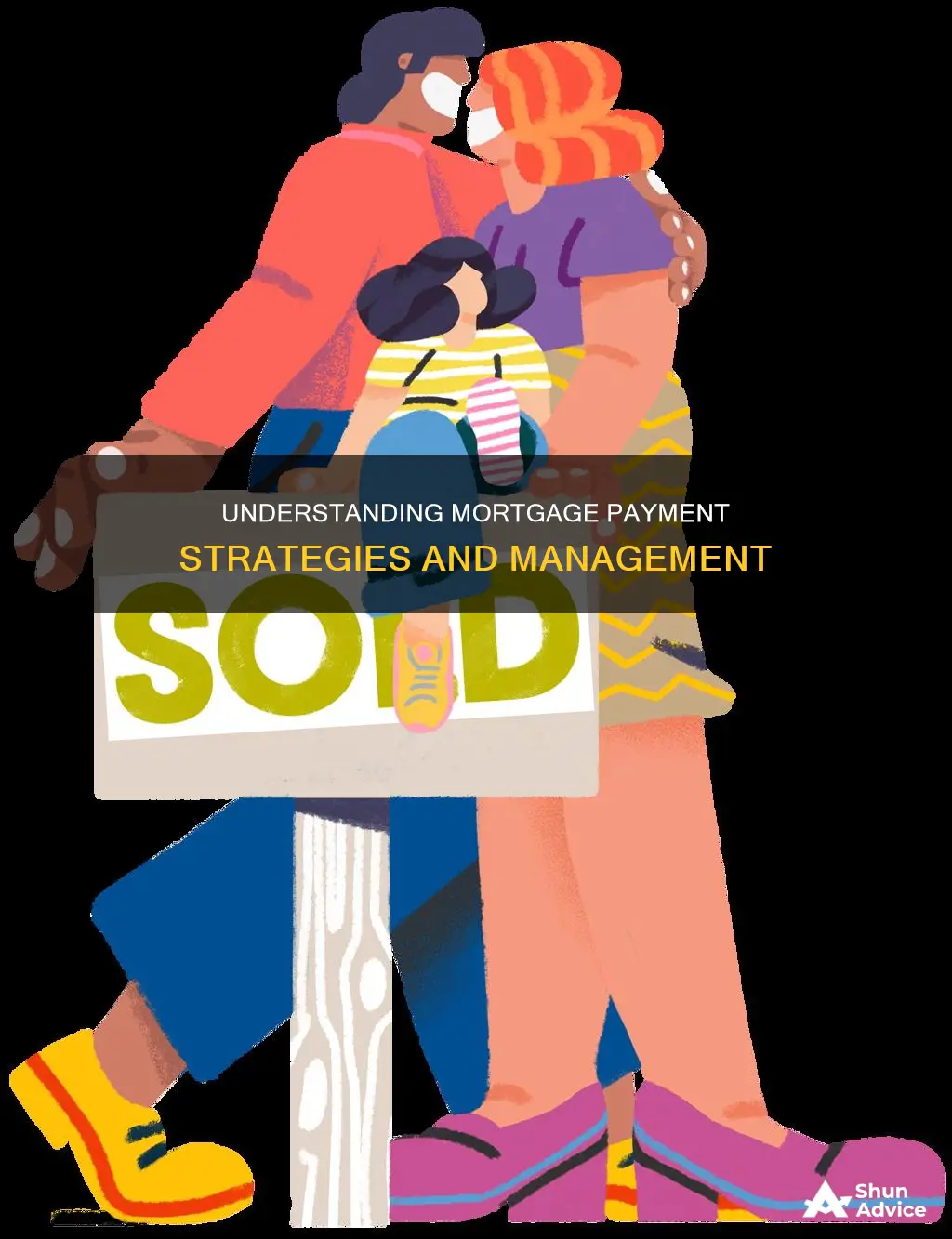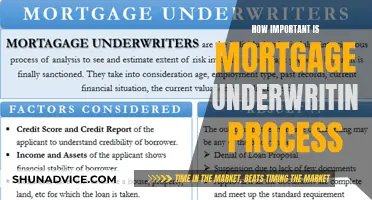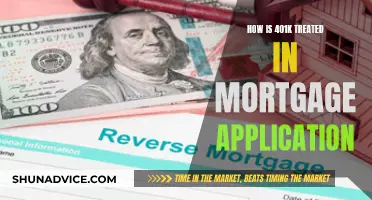
Paying off a mortgage is a significant financial milestone, but it's important to understand the process and the steps to take afterward. When a mortgage is paid off, the lender or loan servicer will send paperwork confirming the final payment and releasing the mortgage obligation. This includes a cancelled promissory note, a loan payoff letter, and a deed of reconveyance. It's also essential to review your homeowners insurance policy, property taxes, and escrow funds. Paying off a mortgage early can provide financial stability and save money in the long term by reducing accrued interest. However, there may be prepayment penalties, and it's crucial to consider other financial goals before making an early payoff decision.
| Characteristics | Values |
|---|---|
| Interest rate | Typically represented as an annual percentage of the remaining loan balance |
| Monthly payment | Represents the total amount paid for the mortgage (principal and interest), homeowner's insurance, property taxes, and neighborhood HOA fees |
| Amortization | The process of paying off debt with a planned, incremental repayment schedule |
| Prepayment penalty | A fee that may be charged for paying off a mortgage early |
| Equity | Paying off a mortgage means having 100% equity in the home |
| Homeowner's insurance | No longer required but still recommended |
| Property taxes | Paid directly by the homeowner |
| Credit score | Paying off a mortgage can have a positive impact on credit scores |
| Financial stability | Paying off a mortgage early can help provide financial stability and save money in the long term |
What You'll Learn

Confirming full payment
Paying off your mortgage is a significant financial milestone. Once you have made your final payment, your lender will reach out to confirm that you have paid your loan in full. You will receive a few documents from your lender, including:
- A cancelled promissory note: This is one of the many documents you would have signed at closing, promising to pay back the amount of your mortgage. The cancelled note, issued by your mortgage lender, indicates your fulfillment of that promise.
- A loan payoff letter: This document will show what you need to pay off the remainder of your mortgage, plus any owed interest or fees. If you have paid everything off, it will verify that as well.
- A deed of reconveyance: This is a lien release confirming that your mortgage company no longer has a legal interest in your property.
- A mortgage release document: This document signifies that the loan has been fully repaid and the lender no longer holds a claim on the property.
- The original promissory note: This will be marked as 'paid'.
- A statement confirming the loan closure.
You should keep these documents in a secure place, such as a safe or a safe deposit box.
In addition to the documents listed above, you may also receive a check or direct deposit for any money left in your escrow account once your mortgage is fully paid. Going forward, you will be responsible for paying your homeowners insurance and property taxes directly. It is also a good idea to review your insurance policy to determine whether it still meets your needs.
BPO Report Generation: Mortgage Process Simplified
You may want to see also

Paperwork and documents
Once you have paid off your mortgage, you will receive a range of documents from your lender confirming that you have fulfilled your final payment and no longer have any mortgage obligation. It is important to keep these documents secure, and you should also take steps to ensure your continued compliance with other financial obligations.
Firstly, you should expect to receive a cancelled promissory note. This is one of the many documents you would have signed at closing, promising to pay back the amount of your mortgage. The cancelled note, issued by your mortgage lender, indicates your fulfillment of that promise. Secondly, you may receive a loan payoff letter, which will show the exact amount you needed to pay off the remainder of your mortgage, including any interest or fees. If you have paid everything off, this document will confirm that. Thirdly, a deed of reconveyance, or a lien release, will confirm that your mortgage company no longer has a legal interest in your property. This document is sometimes called a "satisfaction of mortgage" and may be accompanied by a certificate of satisfaction, issued by your local recorder or county clerk, showing that you have paid off the loan on your property.
You should also receive a property deed, which proves that you are the sole owner of the property. This is a physical, legal document that proves ownership and should be kept somewhere safe, such as a safe deposit box. If you require a copy of your property deed, you can request one through the county of record or check their website for instructions.
In addition to these documents, you will need to take steps to ensure that you continue to meet other financial obligations. For example, you will need to update your homeowners insurance policy and remove your mortgage company from your policy. You will also need to make arrangements to pay your property taxes directly, rather than through your mortgage servicer. Depending on your location, you may receive a single annual bill or multiple bills from various entities. Your town or city hall can help you identify the relevant taxing authorities. You should also notify your accountant, as you will no longer be able to deduct mortgage interest from your tax returns, which could increase your tax liability.
Creating Mortgage-Backed Securities: A Step-by-Step Guide
You may want to see also

Homeowner's insurance
Paying off your mortgage is a significant milestone, and it is important to understand the impact this will have on your finances. One of the key changes relates to homeowners insurance. While it is no longer mandatory to maintain homeowners insurance once your mortgage is paid off, it is still highly recommended. Homeowners insurance provides essential protection for your home, belongings, and other assets.
When you have a mortgage, your lender typically requires you to have homeowners insurance to protect their financial interest in the property. This insurance safeguards against risks like fire, theft, weather damage, and liability. It ensures that if something happens to the property, the loan balance can still be paid off. The lender will usually be listed as a loss payee on the insurance policy, so they are reimbursed in the event of a claim. However, once your mortgage is paid off, you are no longer required to have this level of insurance.
After paying off your mortgage, you should review your homeowners insurance policy. Contact your insurance provider to let them know that you have paid off your mortgage and will be responsible for future payments. You will need to remove your mortgage company from your policy by eliminating the mortgagee clause, which entitled them to reimbursement in the event of damage or destruction of your home. It is also a good idea to review your coverage to ensure it still meets your needs and to determine if your rates may change. While paying off your mortgage may lead to lower insurance premiums, this is not guaranteed and depends on various factors such as your provider, location, and property value.
In addition to reviewing your insurance, you should also reassess your overall budget and financial goals. Paying off your mortgage eliminates a substantial debt, which can positively impact your credit score and free up cash for other purposes. However, it is important to consider the potential tax implications, as you will no longer be able to deduct mortgage interest from your tax returns.
Understanding Mortgage Payments: How High is Too High?
You may want to see also

Property taxes
If you have a mortgage, it is important to remember that property taxes are typically included in your monthly mortgage payments. Your lender will divide your total property tax amount by 12 months, so you don't have to worry about a large tax bill at the end of the year. Once your mortgage is paid off, however, your lender will close your escrow account and send you the remaining balance. At this point, you will be responsible for paying your property taxes directly.
Depending on where you live, you may receive a single annual property tax bill, or you may receive multiple bills from various entities such as school districts, fire departments, and sewer and water districts. To identify all the relevant taxing authorities, you can contact your town or city hall. Additionally, there are several exemptions and deductions that can provide tax relief, such as homestead exemptions for primary residences, senior citizen exemptions, and exemptions for homeowners with disabilities or those who are military veterans or active-duty service members.
When planning your budget, it is crucial to factor in property taxes when calculating your potential mortgage payments. This will ensure that your total monthly expenses do not exceed a manageable proportion of your income, typically recommended to be around 25% of your monthly take-home pay. By considering property taxes in advance, you can make informed decisions and ensure that you are financially prepared for the long term.
Understanding Mortgage Estimation: Key Factors and Calculations
You may want to see also

Financial goals
Paying off a mortgage is a significant financial goal in itself, but it also marks a new chapter in your financial journey. Here are some key considerations and steps to take as you achieve this milestone and plan for the future:
Reassess Your Budget and Goals
Paying off your mortgage is a major financial accomplishment, and it's natural to celebrate this moment. However, it's important to quickly shift your focus to the next steps. Start by reassessing your budget and financial goals. You'll now have extra cash each month that was previously dedicated to mortgage payments, and you'll want to allocate this money wisely.
Understand the Pros and Cons
Before making any decisions, consider the advantages and disadvantages of paying off your mortgage. On the one hand, you'll gain financial freedom and stability, and you may save money in the long run by avoiding additional interest. On the other hand, paying off your mortgage early may come with prepayment penalties, and it could slightly impact your credit score, at least in the short term.
Manage Your Insurance and Taxes
Once your mortgage is paid off, you'll need to take responsibility for paying your homeowners insurance and property taxes directly. These payments were likely part of your monthly mortgage payments, with your loan servicer holding the funds in an escrow account. Contact your insurance provider and local tax authority to inform them of the change, and ensure you receive bills directly from now on.
Review Your Insurance Policy
While you're no longer required to maintain homeowners insurance, it's still highly recommended to protect your valuable asset. Review your current insurance policy to ensure it meets your needs, and consider shopping around for alternative providers if necessary.
Maximise Retirement Savings
With the extra cash freed up from your mortgage payments, consider maximising your retirement savings. If your employer offers matching contributions through a retirement plan, aim to save enough to take full advantage of this benefit.
Store Important Documents Securely
Once your mortgage is paid off, you'll receive various important documents, including a mortgage release document, the original promissory note marked as 'paid', and a statement confirming loan closure. Keep these documents, along with your property deed, in a safe or safe deposit box.
Remember, achieving financial milestones like paying off your mortgage is a process, and it's important to stay informed and make decisions that align with your long-term goals.
Private Mortgage Investing: My Path to Getting Rich
You may want to see also
Frequently asked questions
Paying off a mortgage early can help you save money in the long term by accruing less interest. It can also provide you with financial stability and build equity.
You can pay off your mortgage early by making extra payments toward your principal balance. You can also reduce the amount you pay toward interest by refinancing your mortgage when interest rates decline.
When you pay off your mortgage, you will receive a confirmation from your lender and the original promissory note marked as "paid". You will also receive a statement confirming the loan closure, and a lien release confirming that your mortgage company no longer has a legal interest in your property.
After paying off your mortgage, you should cancel any automatic mortgage payments and adjust your budget. You will also need to contact your insurance provider and local tax authority to let them know that you'll be paying your homeowners insurance and property taxes directly.
The property deed is the physical legal document that proves ownership of your home. You can request a copy through the county of record or check their website for instructions on how to request one.







